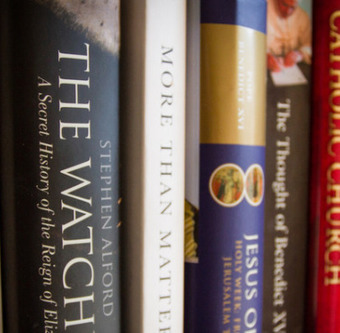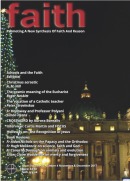
Book Reviews: Reintegrating the human subject into objective metaphysics
Inventing the Universe. Why we can’t stop talking about science, faith and God,
Alister McGrath,
Hodder and Stoughton, 256pp, £20.00.
reviewed by Hugh MacKenzie
Alister McGrath has written a fascinating hymn to the human transcendence of the empirically verifiable. He offers an attractive witness to his own Christian faith but argues that in the final analysis it is not experimentally or rationally “provable”. But nor is the dogmatic New Atheist rejection of them. There must be something that grounds rational “map making” of what we observe, experimentally or otherwise. In most of this book he finds this grounding in the religious choice for a meaningful and good life – but he admits that there are other coherent ways. This implies an anti-dogmatic pluralism that recognises the rational legitimacy of non-religious worldviews. But his final chapter seems to reopen the door to grounding rationally the human transcendence of objective matter.
Cultural commentators
McGrath engagingly calls upon the purple prose of a wide range of great writers to witness to this transcendence, deftly weaving together his autobiographical scientific-atheist-to-Christian story with a compelling narrative of the constructive relationship of science, religion, ethics and the poetic. He draws into his “mental map” a wide range of cultural commentators from G.K. Chesterton to Salman Rushdie. I will suggest below one omission: Newman’s 1870 Grammar of Assent which also well questions the rationalist foundations of inference – though going further than McGrath in affirming a specific grounding of it.
McGrath’s quotations include Richard Dawkins’ fellow evolutionary theorist D. S. Wilson’s put down of the God Delusion author as: “just another angry atheist trading on his reputation as an evolutionist and spokesperson for science to vent his personal opinions about religion.” (p.127). The New Atheists, especially the empiricists, are certainly left looking like the blind man who thought the elephant’s leg was all.
The first-person perspective
Throughout McGrath refreshingly roots his reflection in his own experience, making appropriate nods to the Phenomenological, Pragmatist and even it seems Post-modern traditions. He acknowledges that ultimately no one can avoid the first-person perspective. This means that he can, notwithstanding his pluralist approach to philosophical paradigms, witness to the “richness” of his own, Christian, Weltanschauung.
Precisely because he sees the foundation of all experienced meaning as rooted in one’s own preferred angle, he constantly claims that visions of the world cannot be “proved”, and we must not be “dogmatic”. We should acknowledge that our own view may not be totally coherent, and that there are other fairly coherent ways of understanding the data gathered by human observation. This is like scientific “theories” which are usually “underdetermined” by available data. McGrath unfortunately does not define the concept “proof”, but for him it is closely linked to the modern scientific concept of empirical verification, and has little application to metaphysical visions.
Having his cake and eating it?
Yet the book’s pluralism is constantly put in tension with the human desire for a “richness” of “meaningful” living. This concept cannot mean anything close to “unique coherence” which would undermine his pluralism, though he occasionally sneaks in other adjectives like “simplicity”, “elegance”, and “most satisfying” (p. 79) as well as implying a uniqueness to the “meaningfulness” of Christian living (p.204). In the final analysis the richness concept is not clearly defined. Sometimes he presents this criterium as purely personal which other people, who also happen to look for richness, might perhaps find works for them. At other times, it does seem something more objective and intrinsic to human nature. This reader was tempted to ask, is he having his cake and eating it?
On page 151 McGrath captures this key contrast, “As I have made clear throughout this work I have found that the Christian faith offers a persuasive and deeply satisfying enrichment of a scientific engagement with reality … [but] my position can be criticised on perfectly reasonable grounds.” Why, the reader might ask? Because the “evidential foundations” of this vision, as of all visions, are not provable, but are “enriching” assumptions.
It appears that McGrath has got too sucked into the Popperian insight that human understandings of the world are “theory laden” (p.61) – wherein human culture rather than human nature is made not just intrinsic to explanations of observations, but determinative. McGrath ends up decrying the very ability and “pretensions” (p.194) of credal religion to capture unchanging, objective truths. He fashionably complains of “arrogant religious and anti-religious dogmatisms which seem to trade only in certainties” (p.49). Whilst I think going too far, McGrath is also emphasising the important call to careful mutual listening (p.183), to empirical openness to further discovery, and to value the personal angle.
The coherence of reality
He gets closest to tying down the “richness” of vision to which he frequently appeals by using Lewis’ famous epitaph: “I believe in Christianity as I believe the sun has risen, not only because I see it, but because by it I see everything else” (p.65). He shows that this is similar to Chesterton’s approach and W.V.O. Quine’s argument that “the only valid test of a belief is whether it fits into a web of connected beliefs that accords with our experience of the whole” (p.63 - I would think that Newman’s concept of the “Illative Sense” would dovetail with this.) This “test” of “validity” would seem to broaden the notion of “proof” beyond its restriction to syllogism and experimental verification. Yet such a network of beliefs grounded in experience is still seemingly regarded by McGrath as an individual Weltanshauung, “theory laden”, something of an imposition upon underdetermined data.
Indeed reason, in the guise of the prominent and insightful philosopher of science Nancy Cartwright, allows that “we are imposing an order or rationality where there may be none … inventing our own universe”. (p. 192) It is only religion which, for McGrath, “provides us with the reassurance of the [unity and] coherence of reality” (p.192, his emphasis). Religion postulates a “hidden web of meaning … behind the ephemeral and incoherent world that we experience”. It seems that for McGrath the only thing that saves Christianity from fideism is the richness of vision which theism offers.
And yet in amongst this he throws in a C.S. Lewis quote with a very different feel: “we are not reading rationality into an irrational universe, but responding to a rationality with which the universe has always been saturated.”
Holloway and Newman
Edward Holloway’s Perspectives in Philosophy, Vol. II, Ch. 2, argues that all self-consciousness is imbued with the coherent unity of my experienced world. This intelligibility implies the ordered relationship of distinction between me and my world. Our “experience of the whole” is something objective and grounded. The present pattern of me experiencing myself in a bigger world is always a self-evident starting point for inference.
Newman’s Grammar of Assent has shown that the necessarily non-logical foundations (II,VIII,i) of logical “proof“ are not purely subjective (II,IX,i). For human experience is rooted in something self-evidently intelligible – the distinct, intelligible and moral, relationship between one’s subjective self and one’s objective environment.
The fundamental, objective human need
When McGrath “brings the work to a close” he gets close to this, in tension with the pluralism he has advocated up to this point. Although he still attributes his insight here to the enrichening “narrative of faith” (p.194), actually it is a philosophical reflection upon subjectivity in the present moment. He in fact invokes a range of philosophers from Augustine to Buber in affirming:
The ‘I’ perspective lies at the roots and heart of the human condition. It cannot be excluded from any existentially meaningful account of reality. It has to be brought back in … creating space for a religious or metaphysical enrichment of science. (p.197-8)
McGrath has brilliantly mapped the post-Kantian realignment of science and religion, and the unjustified, if understandable, fall-out for religion. For most of the book he seems to favour an anti-dogmatic pluralism over the admitted fundamental, objective human need for an ethical life. In the end he seems to swing things back to the latter foundationalism, by advocating an innovative reintegration of the human subject into an objective metaphysics. Newman and Holloway would be pleased.
Notes:
Fr Hugh MacKenzie is studying for a PhD in the History of the Philosophy of Science at UCL and is Chaplain at the John and Elizabeth hospital in St John’s Wood, London.





